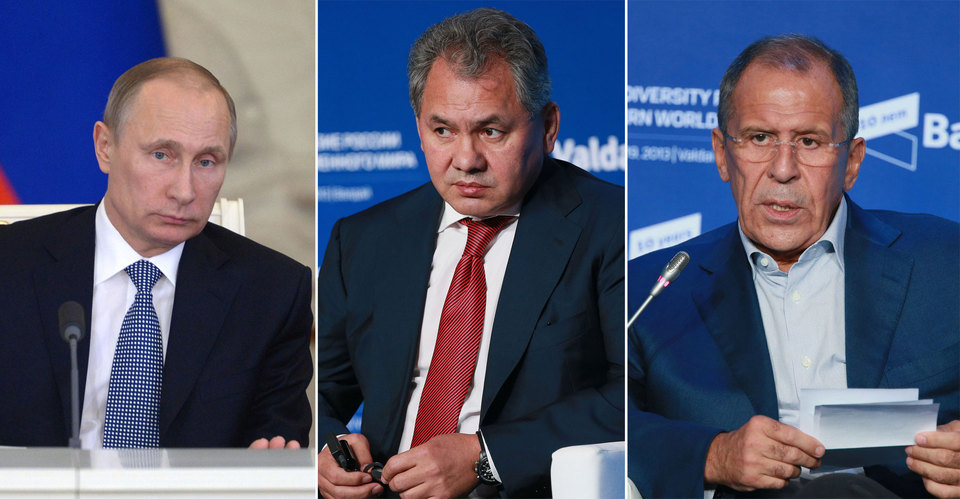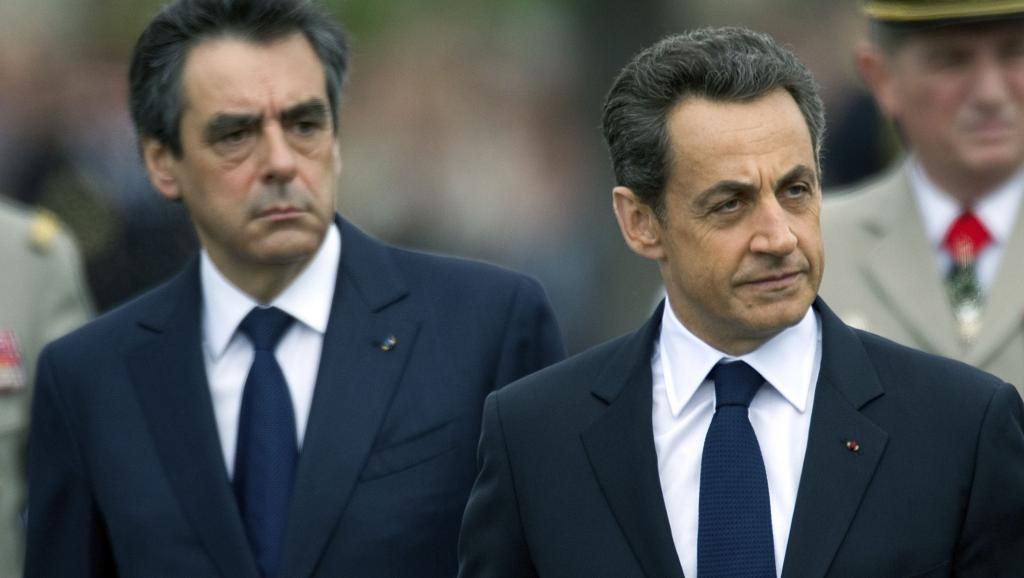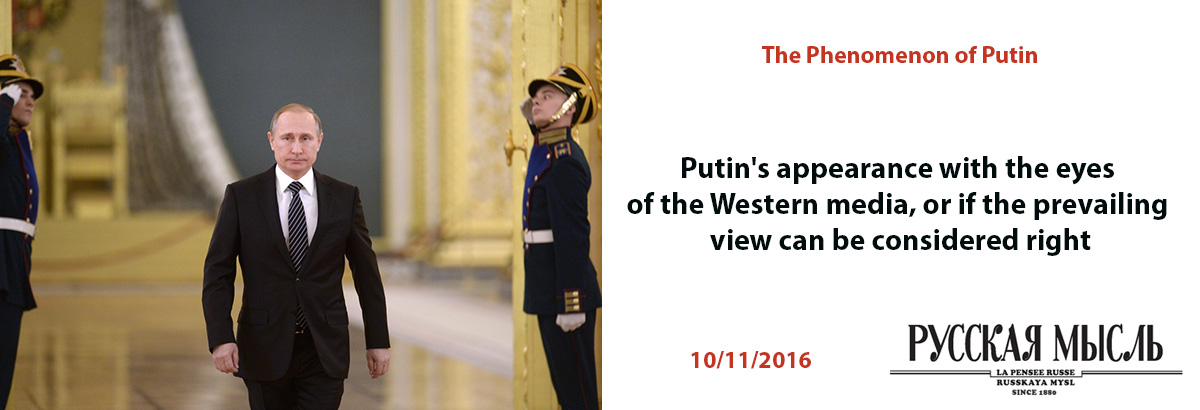Victor Loupan, Head of the Editorial Board
‘Eurosceptics’ are Perceived By the Mass Media as a Putin’s ‘Fifth Column’
Today, arguably, there is no other political figure who is more frequently commented on than Vladimir Putin. He has been famous for a long time as both a person and a politician. There are a lot of books, articles and documentaries which have been made about him. All the same, he has become famous as much by what is imagined by mass media to be the truth about him, as by the reality. It would seem that this is linked to the fact that politics in the West has stopped being prioritised. And Putin is a strong and strictly political player. When analysing the complicated relationship between the EU and Russia, it does not do to underestimate the fundamental apolitical-ness of the former. European ideology considers the principle of overcoming political barriers as its cornerstone, and its political indifference is directly related to this.
In the European mass media Putin is often represented as an ‘authoritarian’ politician. And this is not good! In a liberal society authoritarianism is considered a negative version of paternalism. And paternalism means fatherly relations but in a negative sense: it is the root of all evil. According to contemporary Western ideologists, paternalism leads to sexism, homophobia, phallocentrism and, in general, the tendency to violence against everything that is delicate, gentle and refined.
Recently several very reputable publications started speaking of Putin as a ‘dictator’: a leader of an autocratic state who persecutes opposition, controls mass media, represses dissidence. The much-publicised political crimes, such as the murders of the journalist, Anna Politkovskaya, and the politician, Boris Nemtsov, are presented in a manner which accuses not only the Kremlin but the Russian president personally. What is more, all this is not proven.
He is accused of ‘war crimes’ in Syria. I would not be surprised if, soon, they start talking about ‘crimes against humanity’. The crisis in Ukraine is also interpreted in terms of ‘Russia’s war against Ukraine’ which concords with ‘Putin’s ideology’ which is, obviously, aggressive, revengeful and neocolonial. What is more, Ukraine means nothing to the West: it is of no interest to anyone. It has fallen out of the news like a bullet from its magazine. It is mentioned only in order to explain relations between Russia and the EU. Not long ago, during one famous radio show I shocked my colleagues by saying that Russia and the Ukraine maintain a visa-free regime! How can warring nations maintain a visa-free regime? My colleagues were not aware of it, just as they are not aware of many other things. They are not interested in concrete facts. Factual knowledge is perceived by them as a vestige of the past. From this point of view, contemporary Western journalism has become like Soviet journalism in a period of stagnation: nothing but ideology, clichés and commonplaces.
Of course, it is easy to categorise this as ‘antagonistic Western propaganda’. Much of the Russian mass media do so, but this fails to resolve the issue. True propaganda is strong because it is not afraid of criticism or opposition. The West is indifferent to Russian media’s arguments, because residents of the West do not hear them.
Let us recall Soviet anti-Western propaganda. It was extreme and widespread, but it was counterproductive both for the authorities and for the goals pursued by them. Probably, one can say that propaganda is a display of political powerlessness, because when propaganda lies, it self-destructs. While exploding, it generates a phenomenon of opposition among its own target audience. This is exactly what happened in due course in the USSR.
Actually, the issue is about the balance of forces. Force, or strength, is both an objective and a subjective term. It may be physical and moral: there is spiritual strength and strength of will. In total, it all creates an understanding which leads to the making of one or another decision.
With the support of the Internet, all the major global news companies have begun to give their readers (mainly subscribers) an opportunity to react to articles and publications. Immediately, ‘message boards’ were transformed into the most popular, well-frequented and readable forum-rubrics. In spite of strict censorship from the editorial team, the phenomenon: ‘feedback from readers’ (which is difficult to control) reached such a high volume that its most interesting articles were dedicated to these editorial themes. Why? Because the overwhelming majority of readers expressed their ‘objection’ to the editorial opinion, and its interpretation of the situation. These objections are especially biting when it comes, whether directly or indirectly, to Russia. Here the views of subscribers, whose identities are hidden behind their pen names, differ from the editorial policy of the agency as much as from serious publishers’ – for example, Le Monde or the New York Times – who began issuing volumes on ‘Putin’s trolls’: those creatures who supposedly soil reader’s message boards with their sponsored propaganda.
However, social studies started to appear which showed the complete opposite: that ‘the phenomenon of Putin’ was attracting all those people who were dissatisfied with the state of affairs in Europe. Notorious ‘eurosceptics’, whose numbers increase in leaps and bounds, are perceived even by the serious mass media as a ‘fifth column’ – which is supported by Putin. By whom else, right? All nationalistic and patriotic movements such as The National Front of Marine Le Pen, in France, have become stigmatized as being ‘Putin agents’. Donald Trump could not avoid this stigma too. French ex-President, Nicolas Sarkozy, and his Prime Minister, Francois Fillon, (both are presidential nominees) are also considered as ‘Putin’s folk’. In all European countries, similar lists expand in full view to include an increasing number of major politicians.
All this (and there are many examples which support those listed above) proves that Vladimir Putin, according to his opponents, is alleged to have an unlimited authority, which does not exist in reality. This speaks to the confusion of a certain part of the European political establishment when faced with an unexpected and developing scenario. It was unequal to the sudden and effective participation of Russia on the international scene. That is why it generated, to its own detriment, this ‘Putin’s image’ which needed to be constrained and struggled with by all means possible. But how to struggle with it, nobody knows. Moreover, nobody wants to know. Sanctions as a façade of struggle present a good example of the confusion.
From a sociological point of view, the meaning of ‘phenomenon’ is complex and hard to analyse. For example, in the USA, John Kennedy is considered a phenomenon in spite of the fact that he launched the Vietnam war and came close to a full-scale nuclear war. Notwithstanding all this and many other factors, Kennedy embodies a positive while Richard Nixon, who ended the Vietnam war and who established cooperation with China, embodies a negative. – Do not search for human logic in this. There is only affect and hysteria.
Being a phenomenon, Putin actually embodies opposition. Against what? Of course, against a global order which is an American order. In other words, against chaos, lawlessness, economical, political and military constraint. Of course, he cannot do it himself. Russia is not strong enough to do that. But its resolute and effective actions and initiatives promote a belief in the availability of alternatives that radically contradicts the mandatory idea of global development which has been propagated to us for the last two decades.
The issue is not whether one feels sympathy or antipathy towards Putin. And it is not a choice between a ‘good’ or ‘bad’ image. The thing is, in his opposition to US dictates, he demonstrates not only the possibility of an opposition, but what is more important, of a successful opposition.
Actually, ‘the phenomenon of Putin’ includes the triumvirate consisting of Putin, Shoygu and Lavrov. Its strength centers around the correct analysis of the events and the pragmatism of, not a global approach but a local approach: whether it be in Syria, Ukraine or concerning recent changes in its relationship with Turkey.
The more the West attempts to argue that Russia is suffering from isolation and decadence, the more we get evidence to the contrary. And this is not a ‘phenomenon of Putin’, but a principle of reality.







